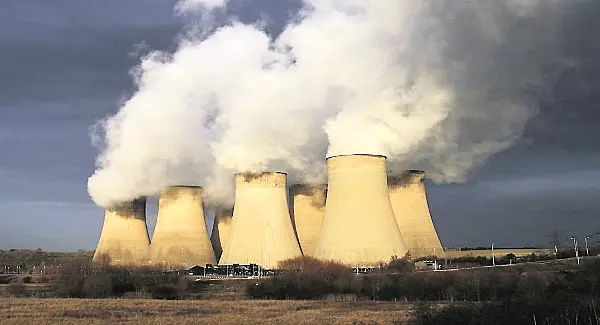Business group Ibec has said a transition to a low-carbon economy is a “no-regrets opportunity” after the local and European elections signalled a public shift towards greener policies.
As the group launched a major report on the low-carbon economy to 2050, chief executive Danny McCoy said the shift from emission-heavy energy to more environmentally-friendly practices could see thousands of new jobs created.
“Ireland needs to play its part by taking decisive action to decouple emissions from population and economic growth, and to transition to a competitive low carbon economy,” he said.
“For Irish business, such a transition presents a no-regrets opportunity to build a better Ireland. If we focus on smart, cost-effective, and evidence-based policies, we can use the transition to enhance our energy security, boost competitiveness, improve quality of life, and create thousands of sustainable jobs across the country.”
Ibec said greenhouse gas emissions have increased by 5% since 2013 and the country is “now significantly off track in meeting Ireland’s international climate obligations”.

It called for policies such as a study into secure energy supply out to 2035, with decarbonisation happening in phases, to ensure a smooth transition.
It also called for a “redesign” of carbon taxes, with gradual increases to provide investment certainty.
The tax should be set at €30 per tonne in 2020 and increase by €5 per tonne annually until it reaches €80 in 2030, and the revenue should be ringfenced to support low carbon investment, said Ibec.
The report states: “The transition will not be easy. It will require enormous private and public investment, the deployment of new and innovative technologies, and a complete transformation in how we use energy, run our factories, fuel transport, build towns and cities and interact with our environment.
“It will also mean hard choices, job losses, and challenging times for business. There are also big risks as poor decisions could lead to higher energy costs, a weakening of national energy security, and reduced competitiveness.”






